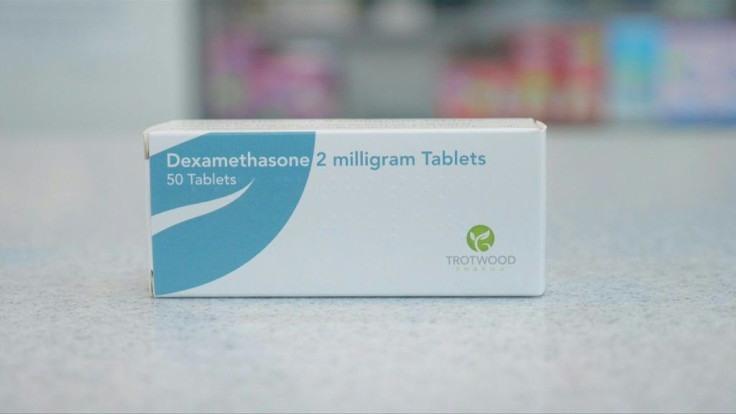President Trump Got Dexamethasone. Can You?

The U.S. Food and Drug Administration (FDA) added dexamethasone, a powerful steroid, to the agency’s drug shortages list on Feb. 8, 2019. Despite persistent and ongoing shortages, President Trump received dexamethasone while undergoing treatment for COVID-19 in early October.
Is this an example of unfair preferential treatment? No. Although the dexamethasone shortage is ongoing, the drug is available and “supplies continue to improve,” according to an email from FDA press officer Jeremy Kahn.
But will supplies be able to keep pace with demand as COVID-19 infections and hospitalizations continue to rise in the Midwest and other parts of the United States? After all, demand for hydroxychloroquine spiked earlier this year after Mr. Trump touted it as a possible cure for COVID-19, leading to shortages that have left some arthritis and lupus patients without the drug they’ve used for years to control symptoms.
The dexamethasone shortage is not likely to cause similar problems, said Michael Ganio, PharmD, senior director of pharmacy practice and quality of the American Society of Health System Pharmacists (ASHP).
“There is no real substitute for hydroxychloroquine, but we have alternatives for dexamethasone,” Dr. Ganio said.
Dexamethasone Shortage Pre-Dated COVID
When the FDA first noted the dexamethasone shortage in early 2019, no one had yet heard of SARS-CoV-2, the novel coronavirus that has since caused so much death, disability and global upheaval. A corticosteroid, dexamethasone is used primarily to control inflammation within the body caused by diseases and medical conditions such as asthma and allergies.
According to Dr. Ganio, the dexamethasone shortage, like most drug shortages, was not caused by increased demand for the drug but by disruptions in the manufacturing process. Oral dexamethasone supplies were unaffected; only the injectable version, which is technically more difficult to manufacture, was in short supply.
Dexamethasone Demand Spiked After Study Reveals It Can Decrease COVID-Related Deaths
Because dexamethasone decreases inflammation, scientists suspected it might be helpful in treating COVID-19, as the disease can cause inflammation throughout the body. In one study, researchers in the United Kingdom gave more than 2,100 patients dexamethasone (either orally or by injection) and compared their outcomes to patients receiving usual treatment. Hospitalized patients who received dexamethasone – a cheap, well-known drug – were more likely to survive than those who did not. The drug decreased deaths by one-third in patients on ventilators.
On June 16, the day the study data was released, hospital orders for dexamethasone increased 183%. Within a week, demand had jumped more than 600%. By mid-June, hospitals were not reliably receiving ordered supplies of injectable dexamethasone.
According to the FDA’s website, five different companies produce injectable dexamethasone, and, like all industries, they almost certainly experienced supply chain and labor disruptions during COVID-related lockdowns.
Acceptable Substitutes are Widely Available
“One good thing about steroids is that you can take them orally, and that’s basically as effective as if you administer them via injection,” Dr. Ganio said.
The tablet form of dexamethasone remains available and is a good choice for many patients – in fact, it’s the form used by most patients who rely on dexamethasone as a treatment for asthma or autoimmune disorders.
Of course, severely ill COVID-19 patients on ventilators cannot swallow oral medication. However, clinicians have a range of treatment options, including prednisone, methylprednisolone and hydrocortisone, three other forms of steroids.
“The National Institutes of Health guidelines for the treatment of COVID-10 state that ‘If dexamethasone is not available, an alternative corticosteroid such as prednisone, methylprednisolone or hydrocortisone can be used,’” Dr. Ganio said.
You won’t likely get a helicopter ride to Walter Reed Medical Center if you contract COVID-19, but odds are good that you’ll receive steroid treatment if your condition warrants it.
Jennifer L.W. Fink, RN, BSN, is a Registered Nurse-turned-writer. She’s also the creator of BuildingBoys.net and co-creator/co-host of the podcast On Boys: Real Talk about Parenting, Teaching & Reaching Tomorrow’s Men .



























